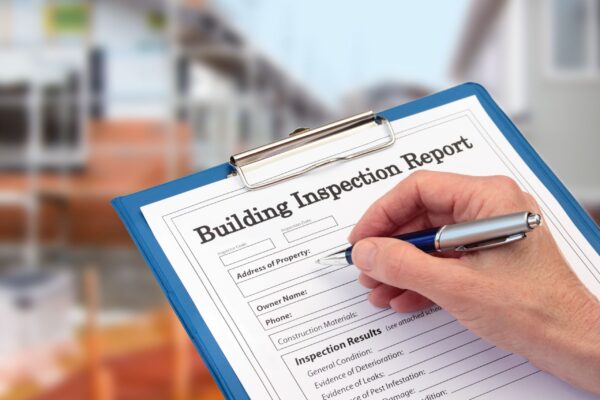Are you a first home buyer? Buying a home can be confusing process and its’s hard to know where to start. Where do you start? What do you do first? What questions should you be asking? Who should you contact and why? To help try and demystify some of this process, here are a few tips to help you on your way:
First Home Buyer
What Questions should I ask?
- Where and what can I buy?
- How much deposit will I need?
- How much can I borrow? Who should I borrow from?
- What are all the other costs involved?
- How can I repay my mortgage quickly?
- What other decisions do I need to make during this process?
What is the First Home Owners Grant or (FHOG)?
GOVERNMENT ASSISTANCE PROGRAMME- The First Home Owner Grant The FHOG scheme was introduced on 1 July 2000 to offset the effect of the GST on home ownership. It is a national scheme funded by the states and territories and administered under their own legislation. Under the scheme, a one-off grant of up is payable to first home owners who satisfy all the eligibility criteria. Eligible first home owners can receive the grant regardless of their income and the area in which they are planning to buy or build. The grant is not means tested and no tax is payable on it. For more please go to: https://www.firsthome.gov.au
Stamp Duty
When you buy a home in Australia, the Government imposes a stamp duty tax. This tax is added to the purchase price of your home and is assessed on the sale price of the property. Stamp duty and concessions vary from state to state. First home buyers may be eligible for rebates in the form of stamp duty rebates or exemptions. We will assist you to calculate your stamp duty if applicable. First home saver account is applicable if you:
- are aged between 18 and 65
- have not previously purchased or built a first home in which to live
- do not have or have not previously had a first home saver account
- provide your tax file number to the provider you can open a first home saver account.This account provides a simple tax effective way for Australians to save for their first home through a combination of Government contributions and lower taxes.
For more information check out: https://www.firsthome.gov.au/ Stamp duty fees, each state calculates their fees differently – for more information please for each state please visit: https://www.stampduty.calculatorsaustralia.com.au/
Know Your Entitlements
Can Parents Help?
Parents now want to assist their children to achieve the great Australian dream of home ownership. It is reported that 8 in 10 parents are prepared to lend a hand by providing some form of financial support in an effort to help their children enter the property market.
This financial support may be in the form of:
- Gifting at least part of the deposit to their children,
- Providing a supplementary loan in addition to the bank loan, typically interest free,
- Acting as guarantor (although the drawbacks need to be considered here).
Gifted deposits
Parents providing assistance with the deposit must be aware that a gift is not repayable. The majority of banks will require parents to declare that the funds they have provided are a non refundable gift.
Supplementary loan
Parents who have available finances today but with future needs, may want to consider providing a supplementary loan to their children, potentially with low or no interest.
It is strongly recommended that this type of loan and its terms be documented between the parties. Remember, parents may have a good relationship with their children and their children’s partners now, but who knows what might happen in the future?
Parents can also choose to buy the home with their children. This allows the child to enter the housing market whilst also giving the parents a share in an investment property. It can be common for both parties to be “Tenants in Common” rather than “Joint Tenants” as this allows the different ownership structure varying from the normal equal 50% share.
It is important to note, if your parents have previously owned property, then with part ownership you may not qualify for the First Home Owner Grant.
Acting as guarantor
Some lending institutions allow a Family Pledge or Parent Guarantee. This allows family members with equity in their own property to help their children/grandchildren/siblings with additional security. This then allowing them to borrow monies, they may not have been able to otherwise.
Some lending institutions also allow the guarantor to nominate the specific percentage or amount to which the guarantee is limited rather than the usual open guarantee for the entire amount.
Credit reference
Every lender is going to do a credit check on you to determine your credit worthiness.
So what is a credit check?
Credit providers (including Banks, Building Societies, Utility Companies and Telecommunications carriers) provide information about individuals’ activities in relation to consumer credit to central databases managed by credit reporting bodies (CRBs). CRBs are then able to include that information on the individual’s credit report. A credit provider can obtain a copy of an individual’s credit report from a CRB to assist them in deciding whether to provide an individual with consumer credit, or to manage credit that has been provided to an individual.
What are they looking for?
- How many credit applications have been made by you
- If you have any defaulted payments or infringement referenced either in your name or your company’s name (if you are self employed).
- If you are unsure of what is on your reference report, it is best to have a chat to us about it prior to making an application.
How much can I borrow?
The amount that you can borrow depends on what you are buying, your fixed commitments and your net income.
As a general rule of thumb, you should be paying less than one third of your income on your mortgage repayments.
What deposit will I need?
Most lenders require 5% deposit plus stamp duty, fees and a history of savings.
If you are borrowing more than 80% of the purchase price you will be required to pay mortgage insurance (which means an additional fee).
Conveyancer or solicitor
You will need to appoint a Conveyancer/ Solicitor to ensure that the contract is in your best interest
Their role is to:
- give advice on the property contract
- facilitate council, strata and company title searches
- order pest and building inspections
- arrange for the signing of contracts
- negotiate with the vendor’s solicitor on your behalf
- arrange for the settlement process
- deal with any difficulties that arise during the settlement period
Building and pest inspections
Building and pest inspections are necessary! You want to make sure you are not buying a LEMON! You don’t want a house that will fall down around you or that could be infested with pests!
There are many great companies out there that will do a building and pest inspection, if you live in an area where termites are known to be a problem, please make sure they also include a termite inspection which can sometimes incur additional costs.
Make sure you enlist the services of an authorised Pest and Building inspector.
Insurance
Mortgage protection and Lender’s Mortgage Insurance Mortgage Protection is Insurance that supports you in case you become involuntarily unemployed or are unable to work due to illness or disability.
Lender’s Mortgage Insurance (LMI) is usually required where your deposit is less than 20% of the purchase price of your property and protects the lender in the event you default on your repayments.
Building Insurance covers your home as well as other structures on your property such as garages, sheds, fences and in-ground pools. It is a requirement by most lenders that you have this insurance in place when you settle your loan with your lender.
Home and Contents Your home and contents insurance should provide you with adequate cover if you need to repair or replace your home (ie, house, garage, shed) and your contents in the event they are destroyed, damaged or stolen.
Income Protection This insurance is designed to pay you a predetermined percentage of your monthly income (usually 75%) should you be unable to work due to illness or injury. Please contact us to discuss this insurance further.
Life Insurance provides a lump sum payment to your beneficiaries in the event of your death. If you are the main income earner in the family, this insurance will help your family manage their future (eg paying out mortgages, schooling and other family expenses) without your ongoing earning capacity. Please contact us to discuss this insurance further.
Total and Permanent Disability (TPD) You can choose to cover yourself for either total and permanent disability or death options, providing you can no longer work or in the event that you die due to illness or accident. When combined with life insurance, this can provide security for you and your family for the rest of your life. Please contact us to discuss this insurance




